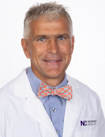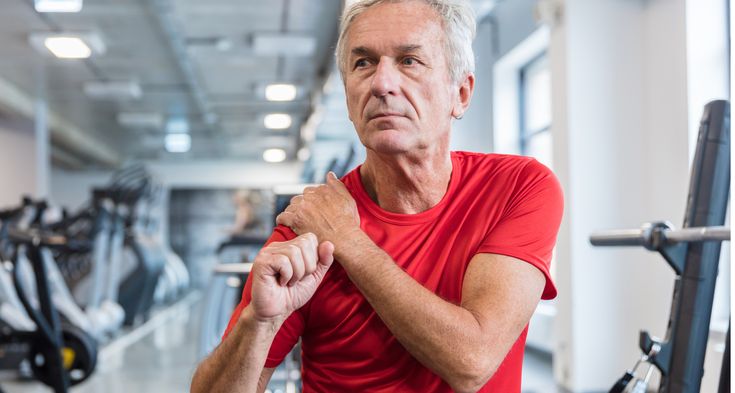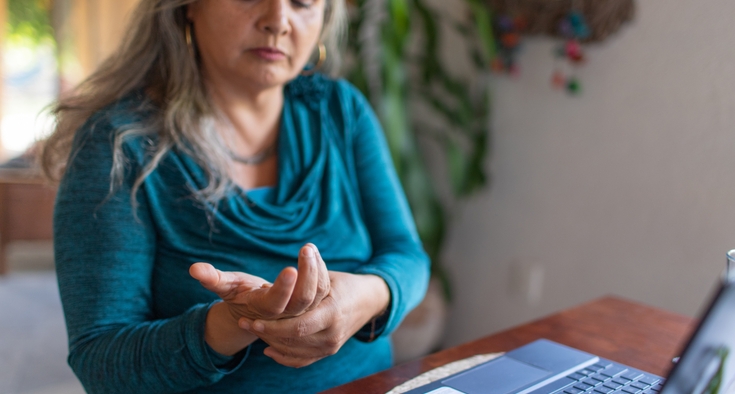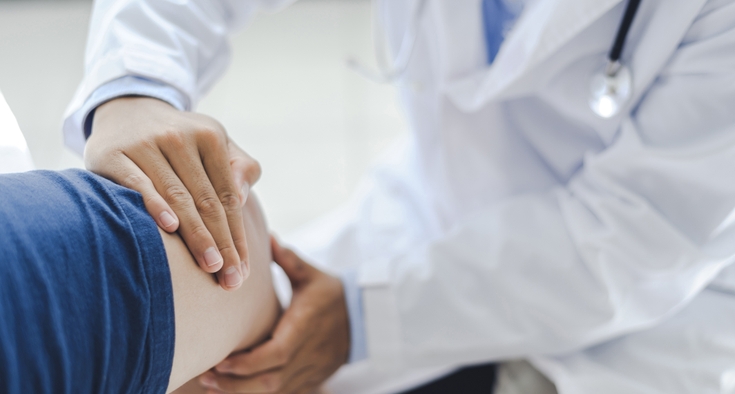There’s a statistic on the Arthritis Foundation website that might surprise you. It’s from an orthopedic surgeon who said, “Fifty percent of outcome success is due to the surgeon, and the other 50% is due to the patient’s commitment to recovery – starting with pre-hab.”

Dr. Brodie McKoy, an orthopedic surgeon with Southern Orthopedics & Sports Medicine - Mount Pleasant in the South Carolina Lowcountry, agreed, but said he might put the patient’s portion even higher.
“Patients are a key factor in the success of orthopedic surgery,” he said. “It only takes me about an hour to perform most surgeries. And that’s a very small amount of time in the overall process. For the patient to have the best outcome possible, they need to be serious about pre-hab and do therapy afterward.”
What exactly is pre-hab?
It’s preventive rehabilitation that helps lessen the risk of complications and helps patients recover faster and with less pain,” McKoy said. “There’s a physical component to it, of course, but there are other elements that are just as imperative. “I tell patients: Don’t just focus on the muscular part of prehab – although it’s important. It’s hydration, nutrition, rest, exercise – all of it.”
The best orthopedic care can help you move freely and comfortably.
Pre-hab will help you before, during and after surgery. Here are McKoy’s pointers for getting into “surgery shape.”
- Ask questions. “The more knowledge you have, the less anxiety you’ll experience,” McKoy said. “You need to understand what the surgery is, what the risks are, what the postoperative recovery time looks like, pain expectations and how the pain will be controlled.” Will you need a cane or walker? When will you be able to resume driving and other daily activities? You’ll rest easier if you know the answers to questions like these.
- Prepare yourself and your home. You may need to line up post-op help at home. You also may need to arrange a ride to and from the hospital or surgery center. “Having a good support system is beneficial before surgery and during recovery,” McKoy said.
“You’ll probably need to prepare your house beforehand if you’re having lower-extremity surgery,” he added. “You don’t want throw rugs in your way; they’re a trip hazard. If your bedroom is upstairs, you may need to sleep downstairs for the first couple of nights. Work with your doctor in advance to schedule physical therapy after surgery.”
- Discuss your medications with your surgeon. And don’t forget to mention vitamins and supplements. “There are some medications you'll need to come off before surgery,” McKoy said. “Blood thinners and even vitamins and supplements can cause prolonged bleeding.”
It’s vital that people on GLP1 medications – Wegovy, Ozempic and the like – let their surgeon know. “Those medications work by slowing down your stomach emptying,” McKoy said. “It can be dangerous if you don't come off those medications two weeks before surgery.”
McKoy recommends alerting your primary care doctor and any specialists to your upcoming surgery. “If you have a pulmonologist, hematologist or any other medical specialist, they should be involved to be sure you’re optimized prior to surgery,” he said.
- Hydrate, hydrate, hydrate. “The No. 1 thing I recommend to patients is hydration with electrolytes,” McKoy said. “Multiple studies show that patients who drink a lot of fluids leading up to surgery have much better outcomes, lower complications and lower risks. Hydration helps with pain, the speed of recovery and the risk of complication.”
How much is the right amount? “A gallon of water a day – I know that seems like a lot – is ideal,” McKoy said. “If you keep a water bottle with you all the time, and you’re mindful about staying hydrated, you may find it doable. But if a half gallon is all you can do, that’s OK, too.”
Start ramping up your water intake about a week before surgery. And when McKoy says “hydration,” he’s not talking about coffee and soda. He means water, water with electrolytes or Gatorade – “but not the sugary kind,” he said. “Any sports drink without sugar will help.”
Best doctors. Amazing nurses. Remarkable care.
Read more here about our expert orthopedic and sports medicine care.
- Get your protein. It’s one of the most essential things in healing after surgery. “Anytime you have surgery, there's trauma to the body,” McKoy said. “Protein helps the body rebuild tissue, supports your immune system and helps preserve muscle mass. It really aids in healing. Whole – not processed – foods are always good, too.”
- Keep the sweet tooth in check. “Having your sugar under control before surgery is important,” said McKoy. “Your hemoglobin A1C should ideally be under 7. We’d prefer it be under 6.” Your primary care doctor can measure this with a blood test.
- Get moving. Any kind of aerobic activity is good, McKoy said. “It doesn’t have to be complicated. A brisk walk around the neighborhood – or on a treadmill – is a good starting place.”
If you’re not used to moving your body regularly, it’s best to begin a new regimen under a doctor’s guidance. You and your doctor should discuss if it’s safe for you to take up exercise on your own. Your doctor may refer you to a physical therapist.
“If you have shortness of breath or chest pain while exercising, those are warning signs to stop,” McKoy said. If they persist, seek medical attention.
Some orthopedic patients may be in so much pain that any kind of movement is difficult. Some – but not all – pain is safe to work through. “If you have an aching type of pain, it’s fine to push through it,” McKoy said. “But if it's a sharp, stabbing pain, stop.”
You want to get to 80% of your target heart rate, McKoy said. You can calculate your maximum heart rate by subtracting your age from 220. (So, if you’re 50, your maximum heart rate is 170 beats per minute.) Calculate your target heart rate range in two steps. Start by multiplying your maximum heart rate by 0.65 to get the low end of the range. Then, multiply it by 0.85 to get the high end. If your maximum heart rate is 170 beats per minute, your target heart rate range is 111 to 145 beats per minute.
If you don’t like math, here’s a rule of thumb: “If you can walk and talk at the same time, you're probably at about 80%,” McKoy said. “If you can’t talk while walking, that's probably a little too aggressive. You don’t need to keep that pace all the time.”
- Focus on gaining strength. “Everybody’s going to have a decrease in their strength after surgery,” McKoy said. “If you can come in at a higher level, then you're going to be better off during surgery and in your rehab afterward.”
If you're having upper-extremity surgery – like a shoulder or elbow – it’s a good idea to work on your rotator cuff and the muscles in your upper body. For those having lower extremity surgery, focus on strengthening your hips, knees and lower body.
“Resistance training – where you’re lifting weights – is very good for building muscle mass,” he said. “You’ll have a decrease in muscle mass after surgery. Resistance training is a good way to prepare.”
- Bend and stretch. Being loose and limber will make a big difference in recovery.
- Put away the cigarettes and cigars. And the electronic cigarettes and vape pens. Smoking has a direct negative impact on surgical outcomes. The World Health Organization reports that smoking just one cigarette decreases the body’s ability to deliver necessary nutrients for healing after surgery.
- Check your weight. “Getting your weight in the appropriate range – hopefully, with a body mass index (BMI) under 30 – is beneficial,” McKoy said. Being overweight or obese can impair wound healing in multiple ways, as excess fat tissue in the body can lead to chronic inflammation, slow down the healing process and limit blood supply to the wound site.
- Rest and de-stress. There’s a mental component to prehab. You should mentally prepare yourself for surgery. “Try to mitigate any stress,” McKoy said. “This goes back to asking questions and getting all the knowledge you can in advance.”
You should feel well-rested before surgery. That means the night before, but if you can get into a good sleep routine a week before surgery, your body will heal much faster, McKoy said.
- Go easy on the alcohol. “Alcohol consumption can affect the enzymes in your liver, and that can affect the anesthesia and lead to complications,” McKoy said. “About a week prior to surgery, try to cut back on alcohol. A glass of wine with dinner is probably OK, but heavier drinking could be detrimental.”
- Consider probiotics. You may be prescribed antibiotics after surgery. McKoy thinks a probiotic is a good idea to aid in keeping your gut microbiome healthy. Ask your doctor to recommend a probiotic supplement, or get probiotics through food sources like fermented sauerkraut, kombucha, yogurt and kefir.
McKoy’s pointers can really apply to anybody. We all should be drinking plenty of water, exercising, getting adequate sleep and maintaining a healthy weight. If you weren’t already doing these things, pre-hab is a great reason to start. And once surgery and recovery are behind you, you’ll be better prepared to keep up the healthy habits you started.













